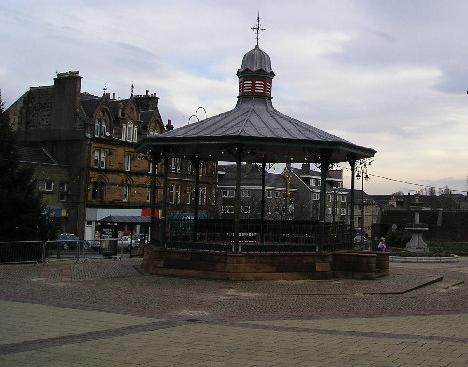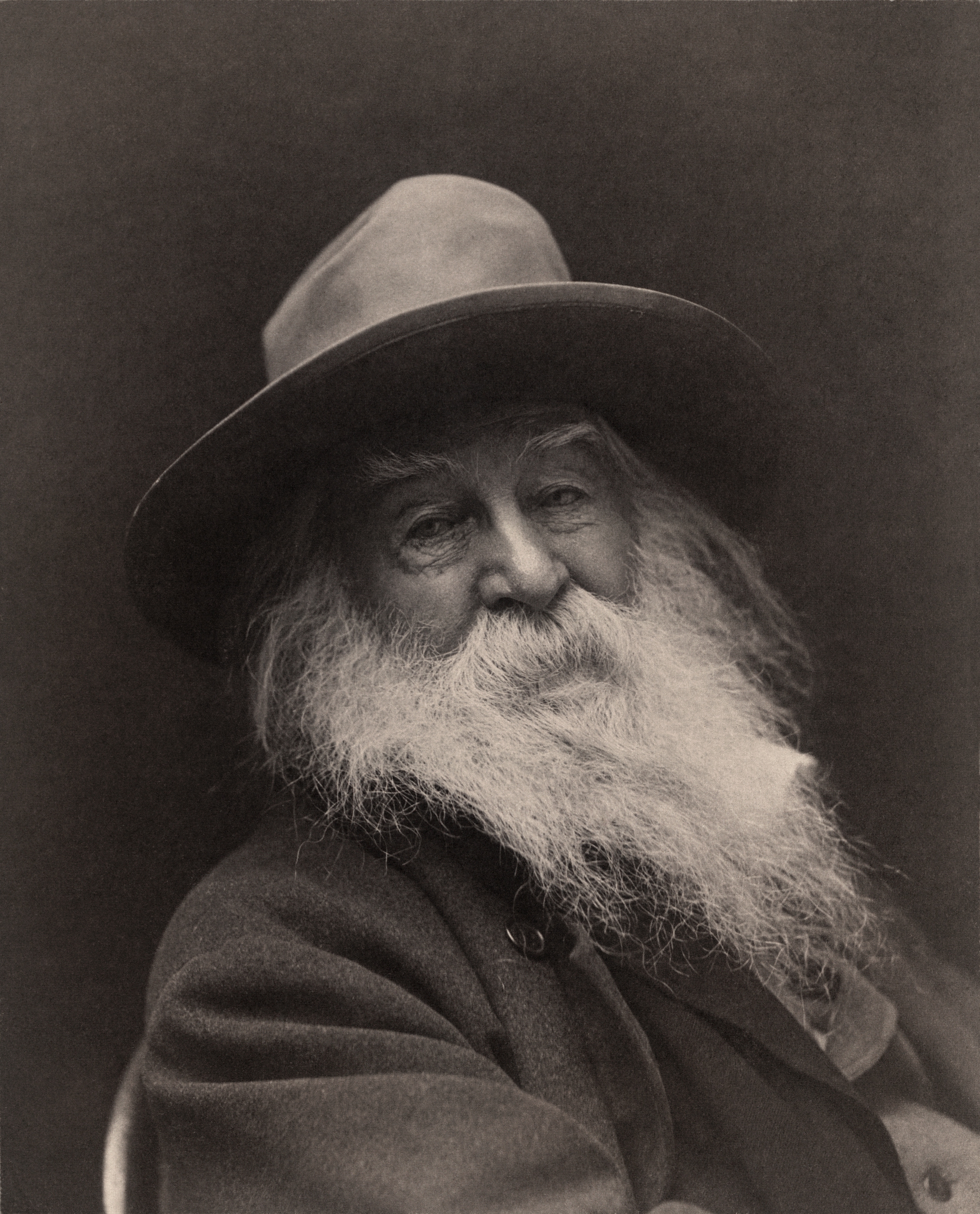|
Alexander McLachlan (poet)
Alexander McLachlan (1818–1896) was a Scottish-born Canadian poet who was active in the mid-nineteenth century and wrote in both Scottish dialect and poetic convention of the homesickness of Scottish immigrants to Canada. Both his contemporary and later critics have called him "the Canadian Robert Burns", after a Scottish national poet who also authored Scottish traditional verse. McLachlan's bound verse includes the titles ''The Spirit of Love'' (1846), ''Lyrics'' (1858), ''The Emigrant'' (1861) and ''Poems and Songs'' (1871). McLachlan was born in Johnstone, Scotland, to Charles McLachlan and Jean Sutherland. In 1820, his father immigrated to Canada and settled in Caledon Township Caledon Township, Ontario was a historic incorporated township and is a present-day geographic township in the modern Region of Peel, Ontario, Canada. The township forms the northwest section of Caledon, Ontario. Caledon Township was likely named b ... on of land, leaving his family in Scotland. ... [...More Info...] [...Related Items...] OR: [Wikipedia] [Google] [Baidu] |
Johnstone
Johnstone ( sco, Johnstoun, gd, Baile Iain) is a town in the administrative area of and larger historic county of the same name, in the west of |
Scotland
Scotland (, ) is a country that is part of the United Kingdom. Covering the northern third of the island of Great Britain, mainland Scotland has a border with England to the southeast and is otherwise surrounded by the Atlantic Ocean to the north and west, the North Sea to the northeast and east, and the Irish Sea to the south. It also contains more than 790 islands, principally in the archipelagos of the Hebrides and the Northern Isles. Most of the population, including the capital Edinburgh, is concentrated in the Central Belt—the plain between the Scottish Highlands and the Southern Uplands—in the Scottish Lowlands. Scotland is divided into 32 administrative subdivisions or local authorities, known as council areas. Glasgow City is the largest council area in terms of population, with Highland being the largest in terms of area. Limited self-governing power, covering matters such as education, social services and roads and transportation, is devolved from the Scott ... [...More Info...] [...Related Items...] OR: [Wikipedia] [Google] [Baidu] |
Orangeville, Ontario
Orangeville (Canada 2016 Census 28,900) is a town in south-central Ontario, Canada, and the seat of Dufferin County. History The first patent of land was issued to Ezekiel Benson, a land surveyor, on August 7, 1820. That was followed by land issued to Alan Robinet in 1822. In 1863, Orangeville was named after Orange Lawrence, a businessman born in Connecticut in 1796 who owned several mills in the village. As a young man, he moved to Canada and settled in Halton County. During Upper Canada Rebellion, Mackenzie's rebellion in 1837, he was a captain in the militia. Lawrence purchased the land that became Orangeville from Robert Hughson. He settled in the area in 1844 and established a mille. The post office dates from 1851. Orange Lawrence committed suicide December 15, 1861. In 1873, the Act of Incorporation was passed and Orangeville was given town status on January 1, 1874. The public library, located at Broadway and Mill Street, was completed in 1908. Andrew Carnegie, well- ... [...More Info...] [...Related Items...] OR: [Wikipedia] [Google] [Baidu] |
Canadian Poetry
Canadian poetry is poetry of or typical of Canada. The term encompasses poetry written in Canada or by Canadian people in the official languages of English and French, and an increasingly prominent body of work in both other European and Indigenous languages. Although English Canadian poetry began to be written soon after European colonization began, many of English-speaking Canada’s first celebrated poets come from the Confederation period of the mid to late 19th century. In the 20th century, Anglo-Canadian poets embraced European and American poetic innovations, such as Modernism, Confessional poetry, Postmodernism, New Formalism, Concrete and Visual poetry, and Slam, but always turned to a uniquely Canadian perspective. The minority French Canadian poetry, primarily from Quebec, blossomed in the 19th century, moving through Modernism and Surrealism in the 20th century, to develop a unique voice filled with passion, politics and vibrant imagery. Montreal, with its exposure t ... [...More Info...] [...Related Items...] OR: [Wikipedia] [Google] [Baidu] |
Scottish Dialect
Scottish English ( gd, Beurla Albannach) is the set of varieties of the English language spoken in Scotland. The transregional, standardised variety is called Scottish Standard English or Standard Scottish English (SSE). Scottish Standard English may be defined as "the characteristic speech of the professional class n Scotlandand the accepted norm in schools". IETF language tag for "Scottish Standard English" is en-scotland. In addition to distinct pronunciation, grammar and expressions, Scottish English has distinctive vocabulary, particularly pertaining to Scottish institutions such as the Church of Scotland, local government and the education and legal systems. Scottish Standard English is at one end of a bipolar linguistic continuum, with focused broad Scots at the other. Scottish English may be influenced to varying degrees by Scots.Stuart-Smith J. ''Scottish English: Phonology'' in Varieties of English: The British Isles, Kortman & Upton (Eds), Mouton de Gruyte ... [...More Info...] [...Related Items...] OR: [Wikipedia] [Google] [Baidu] |
Scottish Canadian
Scottish Canadians are people of Scottish descent or heritage living in Canada. As the third-largest ethnic group in Canada and amongst the first Europeans to settle in the country, Scottish people have made a large impact on Canadian culture since colonial times. According to the 2016 Census of Canada, the number of Canadians claiming full or partial Scottish descent is 4,799,010, or 13.93% of the nation's total population. However, some demographers have estimated that the number of Scottish Canadians could be up to 25% of the Canadian population. Prince Edward Island has the highest population of Scottish descendants at 41%. The Scots-Irish Canadians are a similar ethnic group. They descended from Lowland Scots people via Ulster and observe many of the same traditions as Scots. Categorically, Scottish Canadians comprise a subgroup of British Canadians which is a further subgroup of European Canadians. History Early Scottish settlement Scottish people have a long his ... [...More Info...] [...Related Items...] OR: [Wikipedia] [Google] [Baidu] |
Robert Burns
Robert Burns (25 January 175921 July 1796), also known familiarly as Rabbie Burns, was a Scottish poet and lyricist. He is widely regarded as the national poet of Scotland and is celebrated worldwide. He is the best known of the poets who have written in the Scots language, although much of his writing is in a "light Scots dialect" of English, accessible to an audience beyond Scotland. He also wrote in standard English, and in these writings his political or civil commentary is often at its bluntest. He is regarded as a pioneer of the Romantic movement, and after his death he became a great source of inspiration to the founders of both liberalism and socialism, and a cultural icon in Scotland and among the Scottish diaspora around the world. Celebration of his life and work became almost a national charismatic cult during the 19th and 20th centuries, and his influence has long been strong on Scottish literature. In 2009 he was chosen as the greatest Scot by the Scottish pub ... [...More Info...] [...Related Items...] OR: [Wikipedia] [Google] [Baidu] |
National Poet
A national poet or national bard is a poet held by tradition and popular acclaim to represent the identity, beliefs and principles of a particular national culture. The national poet as culture hero is a long-standing symbol, to be distinguished from successive holders of a bureaucratically-appointed poet-laureate office. The idea and honoring of national poets emerged primarily during Romanticism, as a figure that helped consolidation of the nation states, as it provided validation of their ethno-linguistic groups. Most national poets are historic figures, though a few contemporary writers working in relatively new or revived national literatures are also considered "national poets." Though not formally elected, national poets play a role in shaping a country's understanding of itself. Some nations may have more than one national poet; the idea of a single one is always a simplification. It has been argued that a national poet "must write poetry that close ... [...More Info...] [...Related Items...] OR: [Wikipedia] [Google] [Baidu] |
Caledon Township
Caledon Township, Ontario was a historic incorporated township and is a present-day geographic township in the modern Region of Peel, Ontario, Canada. The township forms the northwest section of Caledon, Ontario. Caledon Township was likely named by settlers, like Edward Ellis or by public voting. Many settlers had come from the area around Caledon, County Tyrone in Northern Ireland. In 1845, the population of the Township was 1,920. There were three grist-mills and a saw-mill. See also *List of townships in Ontario This is a list of townships in the Canadian province of Ontario. Townships are listed by census division. Northern Ontario Northeastern Ontario Algoma District Historical/Geographic Townships *Abbott *Aberdeen Additional *Abigo *Abotossaway * ... References {{coord, 43, 51, 03, N, 80, 00, 03, W, region:CA-ON_type:city_dim:5km_source:GeographicalNamesBoardofCanada, display=title Former municipalities in Ontario Caledon, Ontario Former townships in Ontar ... [...More Info...] [...Related Items...] OR: [Wikipedia] [Google] [Baidu] |
1818 Births
Events January–March * January 1 ** Battle of Koregaon: Troops of the British East India Company score a decisive victory over the Maratha Empire. ** Mary Shelley's ''Frankenstein'' is published anonymously in London. * January 2 – The British Institution of Civil Engineers is founded. * January 3 (21:52 UTC) – Venus occults Jupiter. It is the last occultation of one planet by another before November 22, 2065. * January 6 – The Treaty of Mandeswar brings an end to the Third Anglo-Maratha War, ending the dominance of Marathas, and enhancing the power of the British East India Company, which controls territory occupied by 180 million Indians. * January 11 – Percy Bysshe Shelley's ''Ozymandias'' is published pseudonymously in London. * January 12 – The Dandy horse (''Laufmaschine'' bicycle) is invented by Karl Drais in Mannheim. * February 3 – Jeremiah Chubb is granted a British patent for the Chubb detector lock. * February 5 – Upon his death, K ... [...More Info...] [...Related Items...] OR: [Wikipedia] [Google] [Baidu] |
1896 Deaths
Events January–March * January 2 – The Jameson Raid comes to an end, as Jameson surrenders to the Boers. * January 4 – Utah is admitted as the 45th U.S. state. * January 5 – An Austrian newspaper reports that Wilhelm Röntgen has discovered a type of radiation (later known as X-rays). * January 6 – Cecil Rhodes is forced to resign as Prime Minister of the Cape of Good Hope, for his involvement in the Jameson Raid. * January 7 – American culinary expert Fannie Farmer publishes her first cookbook. * January 12 – H. L. Smith takes the first X-ray photograph. * January 17 – Fourth Anglo-Ashanti War: British redcoats enter the Ashanti capital, Kumasi, and Asantehene Agyeman Prempeh I is deposed. * January 18 – The X-ray machine is exhibited for the first time. * January 28 – Walter Arnold, of East Peckham, Kent, England, is fined 1 shilling for speeding at (exceeding the contemporary speed limit of , the first sp ... [...More Info...] [...Related Items...] OR: [Wikipedia] [Google] [Baidu] |
Scottish Poets
Scottish usually refers to something of, from, or related to Scotland, including: *Scottish Gaelic, a Celtic Goidelic language of the Indo-European language family native to Scotland *Scottish English *Scottish national identity, the Scottish identity and common culture *Scottish people, a nation and ethnic group native to Scotland *Scots language, a West Germanic language spoken in lowland Scotland *Symphony No. 3 (Mendelssohn), a symphony by Felix Mendelssohn known as ''the Scottish'' See also *Scotch (other) *Scotland (other) *Scots (other) *Scottian (other) *Schottische The schottische is a partnered country dance that apparently originated in Bohemia. It was popular in Victorian era ballrooms as a part of the Bohemian folk-dance craze and left its traces in folk music of countries such as Argentina ("chotis"Span ... * {{disambiguation Language and nationality disambiguation pages ca:Escocès ... [...More Info...] [...Related Items...] OR: [Wikipedia] [Google] [Baidu] |








.jpg)